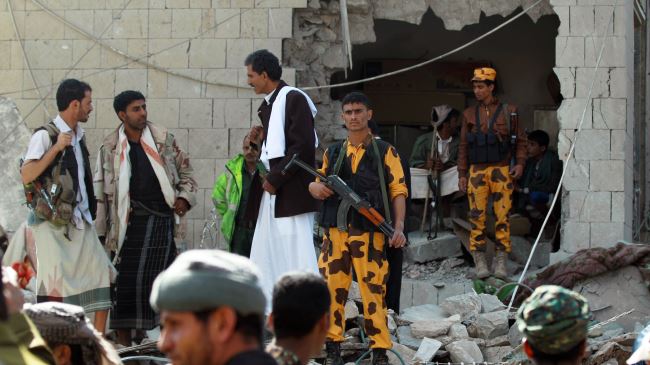 Yemeni security forces inspect the scene of a car bomb, which struck the residence of Iran's ambassador in the Yemeni capital Sana�a, December 3, 2014.[/caption]
Yemeni security forces inspect the scene of a car bomb, which struck the residence of Iran's ambassador in the Yemeni capital Sana�a, December 3, 2014.[/caption]New York, Dec 4, IRNA -- Members of the UN Security Council condemned in the strongest terms the December 3 bomb attack on the residence of the Iranian Ambassador to Yemen, which caused a number of deaths and casualties.
The members of the UNSC expressed their deep sympathy and condolences to the families and friends of those killed and injured by the heinous act.
The UNSC members condemned all acts of violence against diplomatic premises, which endanger innocent lives and seriously impede the normal work of diplomatic representatives and officials.
The members of the Security Council reaffirmed that terrorism in all its forms and manifestations constitutes one of the most serious threats to the international peace and security, and that any act of terrorism is criminal and unjustifiable regardless of its motivation, wherever and whenever and by whomsoever it is committed.
The members of the Security Council reiterated their determination to combat all forms of terrorism, in accordance with its responsibilities under the Charter of the United Nations.
The members of the Security Council underlined the need to bring the perpetrators, organizers, financiers and sponsors of these reprehensible acts of terrorism to justice, and urged all states, in accordance with their obligations under international law and relevant Security Council resolutions, to cooperate actively with the Yemeni authorities in this regard.
The members of the Security Council reminded the different coutnries that they must ensure that the measures taken to combat terrorism comply with all their obligations under the international law, especially the international human rights, the refugee and the humanitarian laws.
The members of the Security Council recalled the fundamental principle of the inviolability of diplomatic and consular premises, and the obligations on host Governments, including under the 1961 Vienna Convention on Diplomatic Relations and the 1963 Vienna Convention on Consular Relations.
They elaborated that it urges the host countries to take all appropriate steps to protect diplomatic and consular premises against any intrusion or damage, to prevent any disturbance of the peace of these missions or impairment of their dignity, and to prevent any attack on diplomatic agents and consular officers.
By IRNA
The Iran Project is not responsible for the content of quoted articles.










